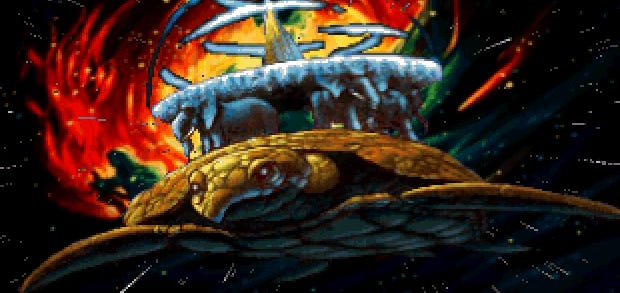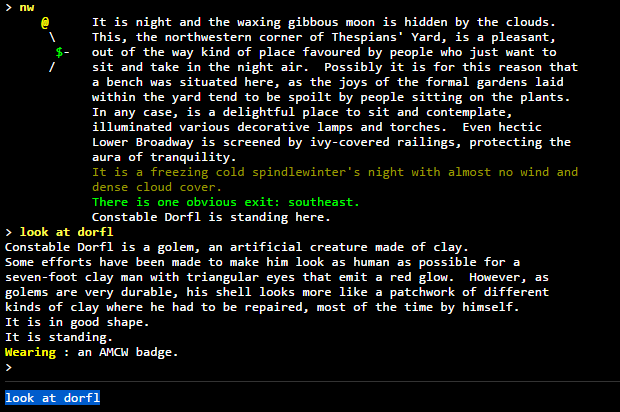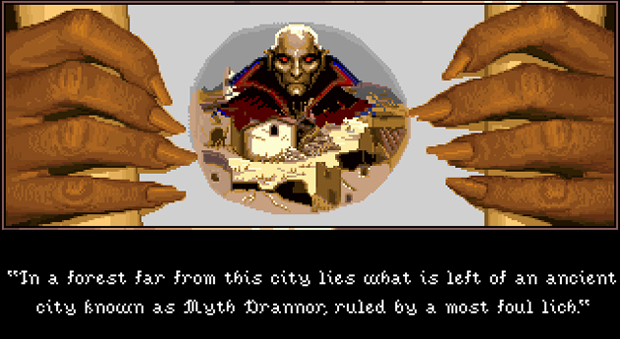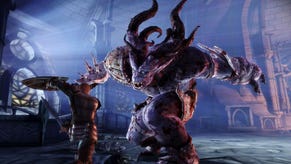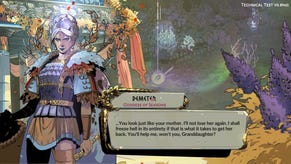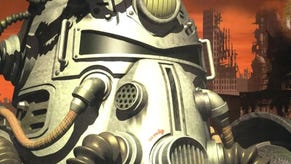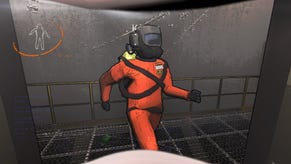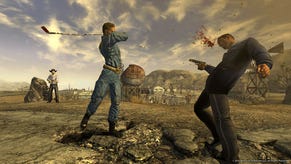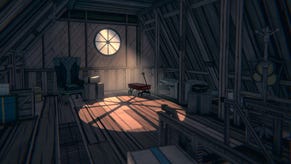The RPG Scrollbars: Night Never Falls On Discworld*
His name is still spoken
So, this week sees the publication of the final Discworld novel, The Shepherd's Crown. I'm not going to talk too much about that, or the tragic death of Sir Terry Pratchett earlier this year. I doubt I'll ever be a good enough writer to express even half of what I'd like to say about his work or passing, and I don't think it's my place to even try.
That being said, it only seems fitting to try and grapple back a little joy from the bastard grip of sadness - as another wise writer once said, shared pain is lessened, shared joy increased. This week then, let's refute a little entropy by taking a visit to the Discworld MUD - a glorious living tribute that deserves to be known for its own merits too.
(* Except when the sun goes down, obviously. But only for a while, so it's fine.)
For those joining us in the last decade or so, MUD stands for 'multi-user dungeon'. They were the proto-MMORPGs, with the likes of Everquest once referred to as 'DikuMUDs' after a particular flavour. They're a bit like playing a classic text adventure, such as Zork, with a few major differences - they run in real-time, are generally roleplaying games full of stats and with combat systems and the like, and of course, there are other players. Kind of in the name, that one. Pretty much every major developer in MMORPGs started off playing MUDs, and much of the terminology stuck. 'Conning' monsters for instance, to see how likely they were to turn you into a splatter of goo if you picked a fight with them, stems from the command 'consider'. When we call enemies 'mob's, it comes from the term 'mobile' - self-moving NPCs of old.
While not really talked about any more, many MUDs do still tick along. Skotos has been running a set of commercial ones since 1999, and you can find lots of others on sites like this one. Probably best not to search for 'MUD play' though, that'll give you very different responses. Generally, active modern MUDs have very small but devoted communities that are generally open to new players, but expect them to respect rules when it comes to things like roleplaying characters and not, for instance, just grabbing a sword and trying to kill everything. Not that this will usually work anyway, as a new player will get splattered faster than an annoying fly. It's worth spending some time reading the rules and getting an idea for what each is trying to offer before jumping in.
On the one hand, the Discworld MUD is easy to get started in. There's a lengthy, not-very Discworldy tutorial at the start, which you really, absolutely, no-kidding need to follow if you've never played one of these games before. At the same time though... well, how to describe the scale? I know. Picture Ankh-Morpork in your mind. Imagine how it might be presented in game form. You're probably thinking of a few key locations, like Sator Square and the Mended Drum and the Shades and the Tanty. But that's okay, right? You know your way around. How big can it be, really?
This is just part of the Ankh-Morpork map.
And here's the thing. Ankh Morpork is a teeny-tiny little scrap of the game. Over the years, the Discworld MUD players have built pretty much the whole damn thing. There's a lot of empty bits that aren't covered of course, but if you want to hop on a coach from Ankh-Morpork to Lancre, you can do that. You can visit places not even seen in the books, like Bes Pelargic and Howondaland. You can head to Genua, where the Coffee Nostra will send hitmen after players who offend them, and baristas will refuse to serve coffee if you're rude. You can even... if you're particularly suicidal... opt to start the game in Uberwald, not far from Dontgonearthe Castle, where vampires and werewolves roam. Just about everything you expect from the books has been added at some point, be it Holy Wood (which doesn't make a whole lot of sense, canonically, but sssh) or the cheery Thank You For Not Plundering Our City sign by the Ankh-Morpork gates.
Somewhat inevitably, the scale of it means you're not likely to bump into many people by accident. At the time of writing, there were only about 70 players online. That's not a huge problem though, thanks to the very active NPCs. If a torch goes out in one of the guilds, someone will be along shortly to relight it. Each guild and area has its own set of characters, reacting and responding to what you do. In Genua for instance, the people get annoyed with you for crimes like tomb raiding or sitting on the wrong benches. Elsewhere, singing the Hedgehog Song can be a broken-leg worthy offence (as well as a weapon against characters without earmuffs). You'll also find a lot of familiar faces while exploring, and achievements for doing so - tracking down all the Cut-Me-Own-Throat-Dibbler variants in the different cities for instance. Quests too, if you're into that kind of thing, you helpful or avaricious soul, you.
Finding all of this isn't easy, to put it mildly. Luckily the main wiki is excellent, with guides to all of the content and useful extras like the Accessibility Guides that focus on navigating and finding key landmarks. It's also possible to call up on your fairy godmother for assistance at any time, who will warp you back to your starting location (the Mended Drum in Ankh-Morpork) or return you to life if you die and can't find any priests around. In one of the biggest deviations from standard Discworld lore, resurrection is easily had (and Death a bit of a git, honestly), but it's not something you want to do on a regular basis. As well as costing a lot of character progress, past a certain point you have to buy lives and will die for real if you run out.
Even with a wiki, and some handy features like being able to see an ASCII map of each area, getting started isn't easy. Discworld MUD offers a vast amount of freedom and flavour, but you're often left fighting against that and the parser to get things done. This isn't a criticism so much as a casual warning; it's a game that expects you to type exactly what it expects rather than one that will bend over backwards to get what you mean. In the Mended Drum for instance, there's a bulletin board. Type 'read bulletin board' and you'll get the message "A bulletin board [40 notes] does not have anything written on it." You have to type 'look at bulletin board' to read the content. This is a big reason why it's worth spending some time in the tutorial area, where the NPCs explain everything in great detail, even if it is a bit bland and not remotely Disc-y.
Once in the main game things pick up immediately. A little like Death's personality, not everything in the game rings particularly true to the Discworld style. It's hard to imagine the likes of Granny and Nanny Ogg talking in terms of magic 'taliswomen' for instance. That's being pretty picky though, and overall what stands out is what an amazing job the MUD does of not only recreating but breathing life into the world. It's almost embarrassing to look at how much NPC banter there is, how much the world reacts and how much of it there is in comparison to mainstream MMOs where characters have nothing better to do with their time than stand around. In addition, while some of the broad strokes are diluted by the needs of the MUD, where possible the implementers have pulled things back. The idea of a Witches Guild for instance is clearly nonsense given how witches work, but in deference to the characters, it works a bit differently to the others - in particular, with no ranks. Instead, the only way for a player to check a witch's power is to look closely and count the number of warts.
Locations vary heavily in terms of detail, but in general Discworld MUD goes out of its way to try and give everywhere a sense of place and lavish description. There's so many wonderful little touches in there, from the Thieves Guild having a collection of stolen underwear from the Assassins, to the tongueless bell of Old Tom regularly rippling its silences over the city and watchmen reacting with cries of "Uh... many o'clock un' all is well!', to being able to visit the Dysk on the Isle of Gods and take in a show written by players and performed by NPCs.
At this point I want to break up the text with a picture, but that doesn't work so well with all-text games. Instead then, for no particular reason, here's a shot of the time Eye of the Beholder III invented the goatse. No, no, it's okay. You're welcome.
If you're willing to deal with the kind of learning curve that would make Dark Souls cry, or simply feel like taking a poke around some familiar haunts in a way that none of the official games ever came close to, you really should check the Discworld MUD out. It's one of the best fan projects for anything that you'll find, and may it live until at least the robots rise and kill us all. Ideally longer, if they have good taste in fantasy.
You don't need a dedicated TELNET client to play (though one won't hurt, clicking Play Now on the main page will pop up one in your web browser) and creating a character is as easy as picking a name and password. Definitely keep the wiki in a browser window, though at least the odds of your tourism burning the city down are, it seems, pretty low.
